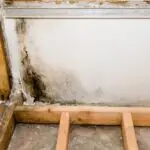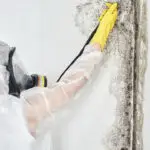Mold is a common household problem that many homeowners underestimate or overlook entirely. However, ignoring mold in your home can pose significant health risks to you and your family. Mold grows in damp and humid conditions, often hiding in basements, bathrooms, and behind walls. While dismissing a small patch of mold as harmless might be easy, its presence can lead to far-reaching and serious consequences. Understanding how mold impacts your health can motivate you to address this issue promptly and safeguard your well-being.
Respiratory Issues and Allergies
One of mold’s most immediate health risks is its ability to cause respiratory problems. Mold spores are microscopic and can quickly become airborne, allowing them to be inhaled into your lungs. For individuals with asthma, chronic respiratory conditions, or a sensitivity to allergens, exposure to mold spores can trigger severe symptoms, such as wheezing, coughing, or difficulty breathing. Even people without pre-existing conditions may experience irritation to their nasal passages, throat, and lungs with prolonged exposure to moldy environments.
Additionally, mold can cause or worsen allergies, manifesting in symptoms like sneezing, runny nose, red and itchy eyes, and skin rashes. Black mold, in particular, has been linked to heightened allergic reactions. These allergic responses develop due to the body’s immune system attempting to fight off the mold spores, leading to inflammation and discomfort.
Toxic Reactions from Black Mold
Certain types of mold, such as Stachybotrys chartarum, often called black mold, produce mycotoxins that can be especially harmful. Prolonged exposure to these toxic substances can lead to more severe health conditions, including chronic fatigue, headaches, nausea, and even neurological problems. Mycotoxins suppress the immune system, potentially making individuals more susceptible to infections.
Exposure to black mold poses an even greater risk for households with children, elderly individuals, or those with existing health conditions. Young children and seniors have weaker immune systems, making them more vulnerable to the adverse effects of mold. Pregnant women are also advised to avoid environments with mold exposure, as mycotoxins could potentially harm fetal development.
Aggravation of Chronic Illnesses
Ignoring mold in the home can have compounding effects for those with chronic illnesses. Individuals with autoimmune disorders, compromised immunity, or cardiovascular diseases may experience worsening symptoms when exposed to mold over time. People dealing with existing lung diseases, such as chronic obstructive pulmonary disease (COPD), are particularly at risk, as the persistent presence of mold spores can exacerbate breathing difficulties and even result in respiratory infections.
The possibility of mold spreading through your home amplifies the threat, as even areas where mold is not visible may be contaminated, thereby maintaining a continuous source of allergens or toxins. Neglecting mold cleanup can lead to it infiltrating the HVAC system, further circulating harmful particles throughout your living space.
Mental Health Impact
The effects of mold are not limited to physical health—prolonged exposure can also have a psychological impact. Some research suggests that living in mold-infested environments can lead to brain fog, difficulty concentrating, and even mood disturbances, such as increased levels of anxiety and depression. These symptoms are thought to be linked to the inflammation triggered by exposure to mold toxins, which can adversely affect mental clarity and emotional stability over time.
Additionally, being aware of mold in your home but failing to address it can contribute to chronic stress. The fear of health issues and the potential cost of remediation can create a significant mental burden, affecting quality of life.
Preventative Measures and Action Steps
Preventing mold growth is key to maintaining a healthy home. Controlling humidity levels using dehumidifiers and ensuring proper ventilation can hinder mold development. Routine inspections, particularly in moisture-prone areas, can help you identify mold problems early. If you do find mold, acting immediately is crucial. Small patches of mold can sometimes be handled through DIY cleanup methods using appropriate protective gear and cleaners, but extensive mold infestations require the expertise of a professional remediation service.
Professional mold remediation ensures that mold is removed safely and thoroughly, preventing it from returning or spreading to other areas. This process also addresses the root cause of the mold issue—whether it’s a leaky pipe, poor ventilation, or foundational moisture problems—to provide a permanent solution.
Closing Thoughts
The health risks associated with mold in your home are too significant to ignore. From respiratory problems and allergic reactions to toxic exposure and mental health effects, mold poses a clear danger to your overall well-being. Allowing mold to persist in your home can lead to costly structural damage and exacerbate health complications. Taking preventative measures and addressing mold issues immediately can protect your family’s health and ensure a safe, comfortable living environment. Don’t wait for small mold infestations to become more significant problems—act today to keep your home mold-free and your loved ones healthy.



